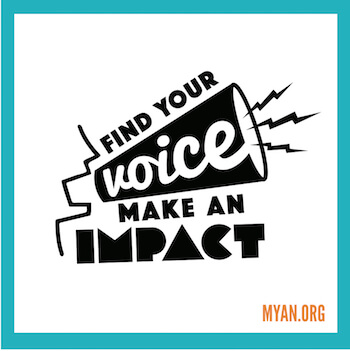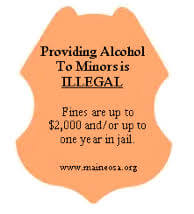Parent
As a parent or caregiver, you are the biggest influencer in your child’s life. Research shows talking with your child about tobacco, alcohol, and drugs is the best way to protect him or her from the harmful health effects of tobacco, substance use and medication misuse.
Tips
As a parent, you can influence your kid’s decisions and make a difference. Parents have more influence in their children’s lives than kids peers, music or media. Here are ways to protect your child from the dangers and health effects of tobacco, substance, and drug use.
Talk to your children.
Start early (age 5 or 6) and continue the conversation about the dangers of tobacco and tobacco messages they see everyday.
Spend time with your kids.
Be involved in your child’s life, ask them questions, compliment them when they do something right, and schedule time together.
If you smoke, quit.
As a parent who smokes, it’s hard to tell your kids not to smoke and it’s harder for them to understand they shouldn’t when you do. Get help with quitting.
Get involved.
Work with your community, schools, and local organizations to help meet their goals of having tobacco-free environments. Get your kids involved in youth tobacco prevention programs.
Protect your kids from secondhand smoke.
There is no safe level of tobacco smoke exposure. Protect your child from secondhand smoke by visiting tobacco-free areas and pledge to keep your home smoke-free.
If your child smokes, help them to stop.
See Help Youth Stop Using for things you can do.
Make rules.
Talk to your children and let them know the rules and the consequences of using alcohol or other drugs. Enforce the rules so they know you are serious.
Talk with other parents.
Exchange contact info and keep in touch with other parents to ask about plans, parties, and supervision. Let them know to contact you if they have concerns about your child.
Be up and ready.
Wait up or set the alarm for curfew time. Talk with your teen about the night.
Limit Access.
If you have alcohol in your home, keep track of it – know how much you have and keep it where teens cannot get it.
Check in often.
Be sure your child knows how to reach you at all times. Ask them to call you at a set time so you can confirm where they are and how they are doing.
Keep track of your medications.
Know what prescription and over the counter medicines you have and count them on a regular basis.
Store safely.
Lock and store medications in a safe place.
Properly dispose.
When you stop taking your medications, properly dispose of them to prevent misuse and pollution. Your local law enforcement agency can help you find the nearest drop off location.
Use as intended.
Use your medications only as prescribed and never share prescriptions with others.
Know the dangers.
Understand the dangers of medication misuse and talk to your children about addiction.
Health Effects on Youth
Because your child’s body is still growing, the affect of tobacco and alcohol use is different than it is for an adults. It can negatively impact emotional and physical development, as well as lead to long-term health effects. Youth are often unaware of the risks of addiction, which can interfere with school, relationships, and health.
Products to Know
Tobacco
Finely cut tobacco leaves rolled in thin paper for smoking.
Health Concern
Nicotine is the primary component of tobacco, and is the primary reason tobacco is addictive.
Electronic Vapor Products
(e-cigarettes)
Devices used to aerosolize active ingredients for the purpose of inhalation.
Health Concern
Currently unregulated by the U.S. Food and Drug Administration, so amount of nicotine is unknown. Nicotine is addictive in any form and lethal in high doses.
Chewing Tobacco
Smokeless tobacco consumed by placing a portion of the tobacco between the cheek and gum or upper lip.
Health Concern
It is highly addictive, containing high levels of nicotine and many cancer-causing chemicals. In addition to the cancer risk, other oral side effects include concerns with gums, teeth, and bad breath.
Snus
Flavored smokeless tobacco.
Health Concern
Same risks as chewing tobacco, but faded sweeteners and flavors make it more appealing to youth.
Cigars
Tightly rolled bundle of dried and fermented tobacco leaf in a series of types, flavors, and sizes.
Health Concern
Cigars contain the same hazards as cigarettes and are taxed at a much lower rate, resulting in lower prices.
Bidis
Hand-rolled tendu leaves tied up with string.
Health Concern
Bidis contain low-grade tobacco and more tar, nicotine, and carbon monoxide than cigarettes.
Kreteks (Clove Cigarettes)
Cigarettes made with a blend of tobacco, cloves and other flavors.
Health Concern
Contain the substance “Eugenol” which is a mild anesthetic that causes a person to smoke more deeply, making them even more of a hazard than cigarettes.
Natural Cigarettes
All natural, additive-free cigarettes.
Health Concern
Contain hundreds of different chemicals, many of which can be extremely dangerous when burned and inhaled.
Pipes
Hand held devices made specifically to smoke tobacco with a chamber, stem, and mouthpiece.
Health Concern
Use black (air cured) tobacco, which carries a higher risk of esophageal and lung cancer, even for those that do not inhale.
Water Pipes (Hookahs)
An instrument that mixes tobacco smoke with water or other liquid, then draws into the mouth.
Health Concern
The water does not filter out toxic chemicals and group sharing can increase spread of germs.
Potentially Reduced Exposure Products (PREPS)
Alternative tobacco products put out by various tobacco companies with the explicit or implied claim that they are less harmful than mainstream products.
Health Concern
Sometimes confused with products such as nicotine gum, lozenge or inhaler, which have been approved to help with smoking cessation. PREPS are not lower-risk and are not approved for this use.
Marijuana
Recreational or medicinal drug.
Health Concern
Long-term side effects may include addiction, decreased mental ability.
Opioids (Fentanyl)
A prescription drug typically used to treat patients with severe pain or to manage pain after surgery.
Health Concern
50 to 100 times more potent than morphine, heroin, and other dangerous drugs.
Inhalants
Typical products such as glue, spray cans, paints or sprays are inhaled.
Health Concern
Inhalants are a serious risk to youth. Users can die the 1st, 10th or 100th time a product is misused as an inhalant.
Hallucinogens (LSD, Acid)
A psychedelic drug known for its psychological effects.
Health Concern
Used as an escape drug, with possible adverse psychiatric reactions such as anxiety, paranoia, and delusions.
MDMA (Molly, Ecstacy)
A hallucinogen or stimulant.
Health Concern
Risks of overdose includes high blood pressure, faintness, panic attacks, and in severe cases, a loss of consciousness and seizures.
Synthetic Drugs
(K2, Spice, Bath Salts)
Man-made chemicals rather than natural ingredients.
Health Concern
Due to growing number of chemicals developed, there is no way of knowing what the drugs contain and the effects are unknown.
Tips To Help Youth Stop Using
If your child is using tobacco, alcohol, or drugs, it will be up to him or her to make the decision to stop. Your support is critical to helping them. Here are some things you can do:
Don't Lecture
Don't Accept
Find Out Why
Discuss
Make a List
Use Personal Stories
Prepare
Contact
For Help Quitting
Find More Resources
Vaping Support Line
The Maine Vaping Quit Support Line is available to any Maine adult or youth, speak with a trained Quit Coach for support and get answers to your questions about vaping. It’s free and confidential! Parents, if you have vaping questions, call 1-844-9NO-VAPE to speak with a coach or email NoVAPE@MaineQuitLink.com for support.
Times Have Changed
If you are a parent of guardian, times have changed since you were a teen. It’s a different world. It’s a different time. It’s a new era! The change between then and now is a lot more serious than just hairstyles, fashion and bad to the bone sayings. Our kids today engage in behaviors and products that didn’t exist back in the day and can be a lot more harmful. There’s a lot to catch up on! Get the facts, know what to look for, and know what you can do to help prevent your child from tobacco and substance use.
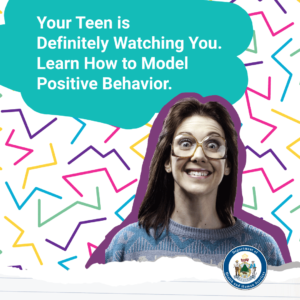

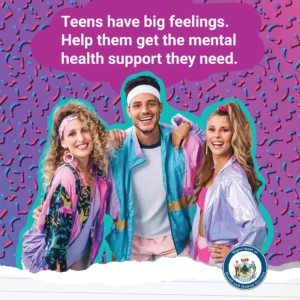
All Bottled Up
Stress. Anxiety. Boredom. Unrealistic expectations. Do you know what your teen is keeping bottled up inside? When the pressures of everyday life meet the availability of prescription stimulants, your teen may be in harm’s way.
Medications such as Adderall®, Ritalin®, Concerta®, or Dexedrine®, when prescribed by a doctor, can help manage symptoms of ADHD. But some teens are taking stimulants not prescribed to them. The reasons may vary from using as a study aid to avoiding boredom. The most common source of these drugs is their own friends or family members. Talk to your teen about their bottled up feelings and the serious risks of taking medication that isn’t prescribed.
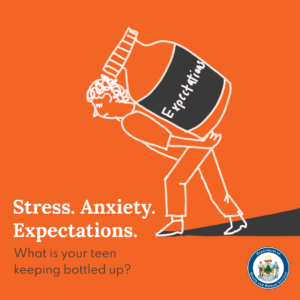
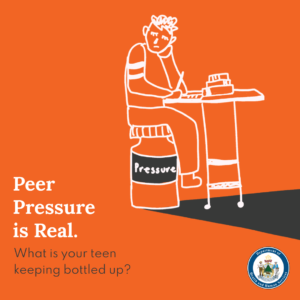
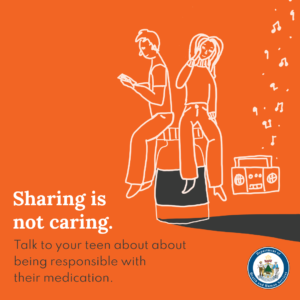
Get Youth Involved
The development of youth leadership skills and youth-adult partnerships are essential to environmental and policy change around tobacco and substance abuse in Maine. Getting youth involved will help reduce and prevent tobacco and alcohol use among their peers, as well as empower them with the skills they need to create a healthy community.

